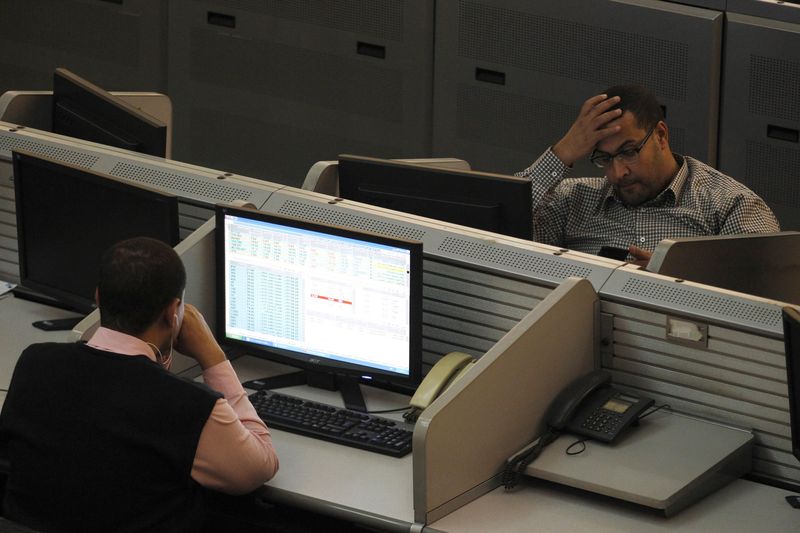© Reuters. FILE PHOTO: A bronze seal for the Department of the Treasury is shown at the U.S. Treasury building in Washington, U.S., January 20, 2023. REUTERS/Kevin Lamarque/File Photo
By Lucy Raitano
LONDON (Reuters) -U.S. Treasury funds recorded their first outflow since February in the week to Wednesday, as global investors shed $1 billion in the government bonds and piled into stocks, according to Bank of America and data provider EPFR on Friday.
Investors snapped up $23.5 billion in stocks in the week to Nov. 15, marking the second largest weekly inflow into equities of 2023.
The influx to stocks and flows out of U.S. Treasuries follows data on Tuesday that showed U.S. inflation slowing, boosting market hopes that the Federal Reserve is finished with rate hikes, and prompting traders to start mulling future rate cuts. Data this week also showed UK inflation slowing sharply.
With macroeconomic data hinting that a deep recession may be avoided, the U.S. benchmark rose about 2.7% in the week to Wednesday, while Europe’s ticked 2.4% higher.
Global bond yields have dropped steadily since early October, driven by mounting evidence that some of the intense price pressures of the past two years are fading in the United States and Europe.
Over three quarters of respondents in a BofA Global Research survey of global fund managers on Tuesday said they think the Fed’s interest rate hiking cycle is over.
Cash funds saw inflows of $20.5 billion, BofA said, and overall investors bought $2.6 billion in bonds, marking a sixth week of inflows. Meanwhile, gold funds saw outflows of $400 million, BofA said.
Outflows from emerging markets debt continued for the 16th week, with EM funds shedding $1.6 billion in the latest week. European equities have recorded 36 weeks of outflows in total.
In stocks, U.S. large caps clocked their largest inflow since February 2022, with $23.7 billion, while financials recorded their first inflow since July and materials marked their fifth week of inflows, the longest streak since May 2022.
BofA’s bull & bear indicator, a measure of market sentiment, rose marginally to 1.7 from 1.6, a contrarian “buy” signal, said BofA. On strong HY bond inflows, improving credit technicals and stronger equity market breadth.
Read the full article here





